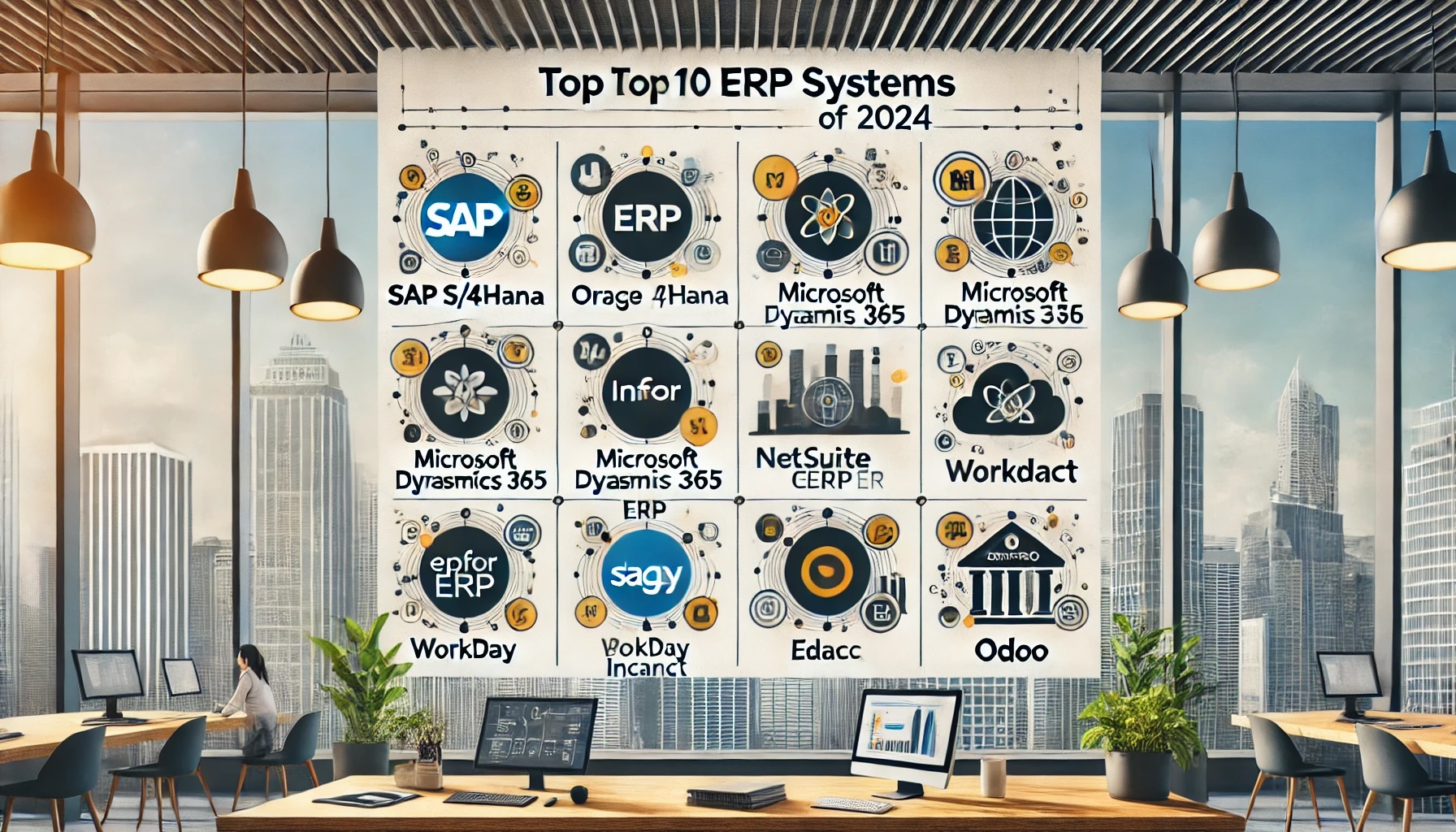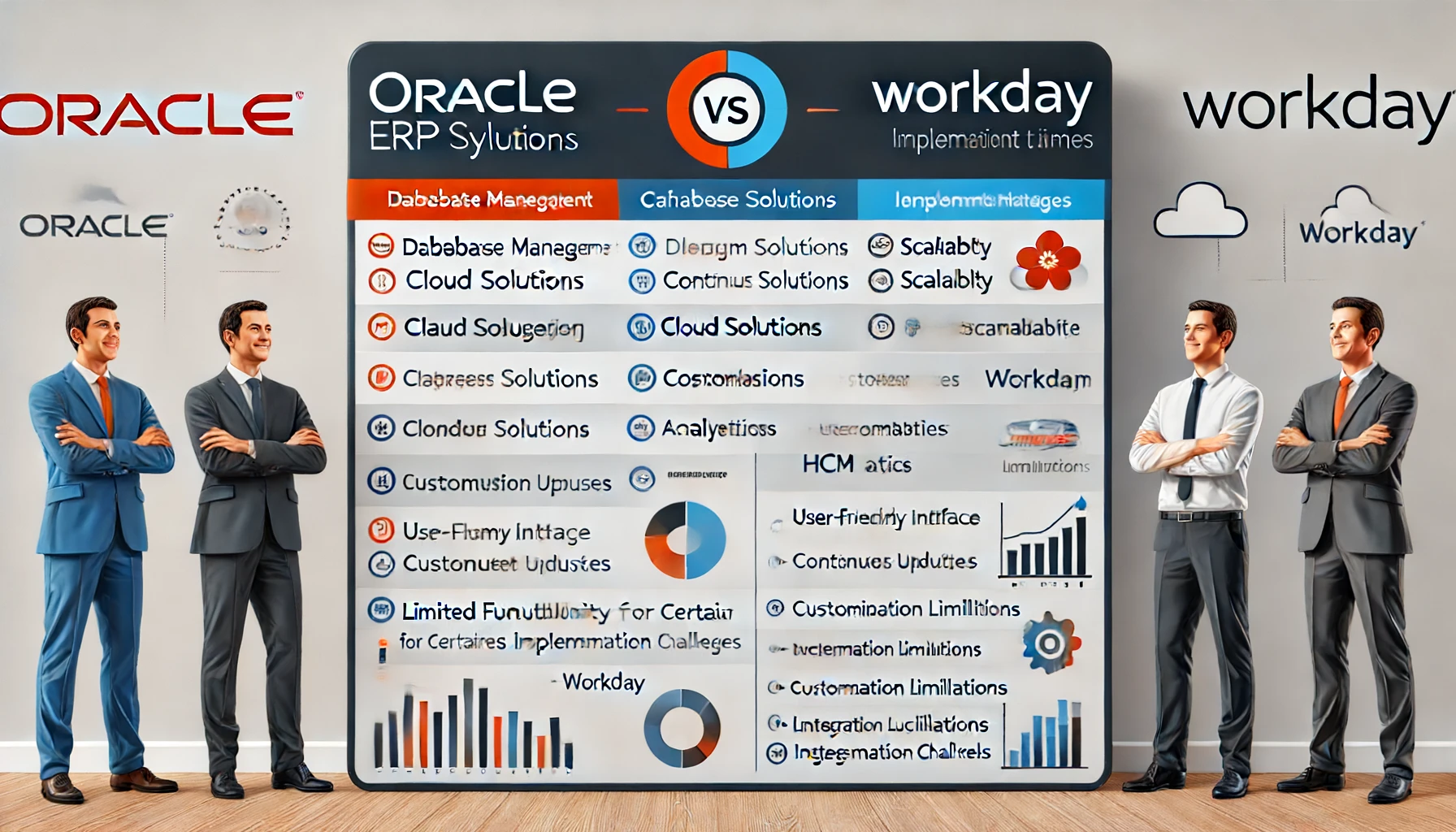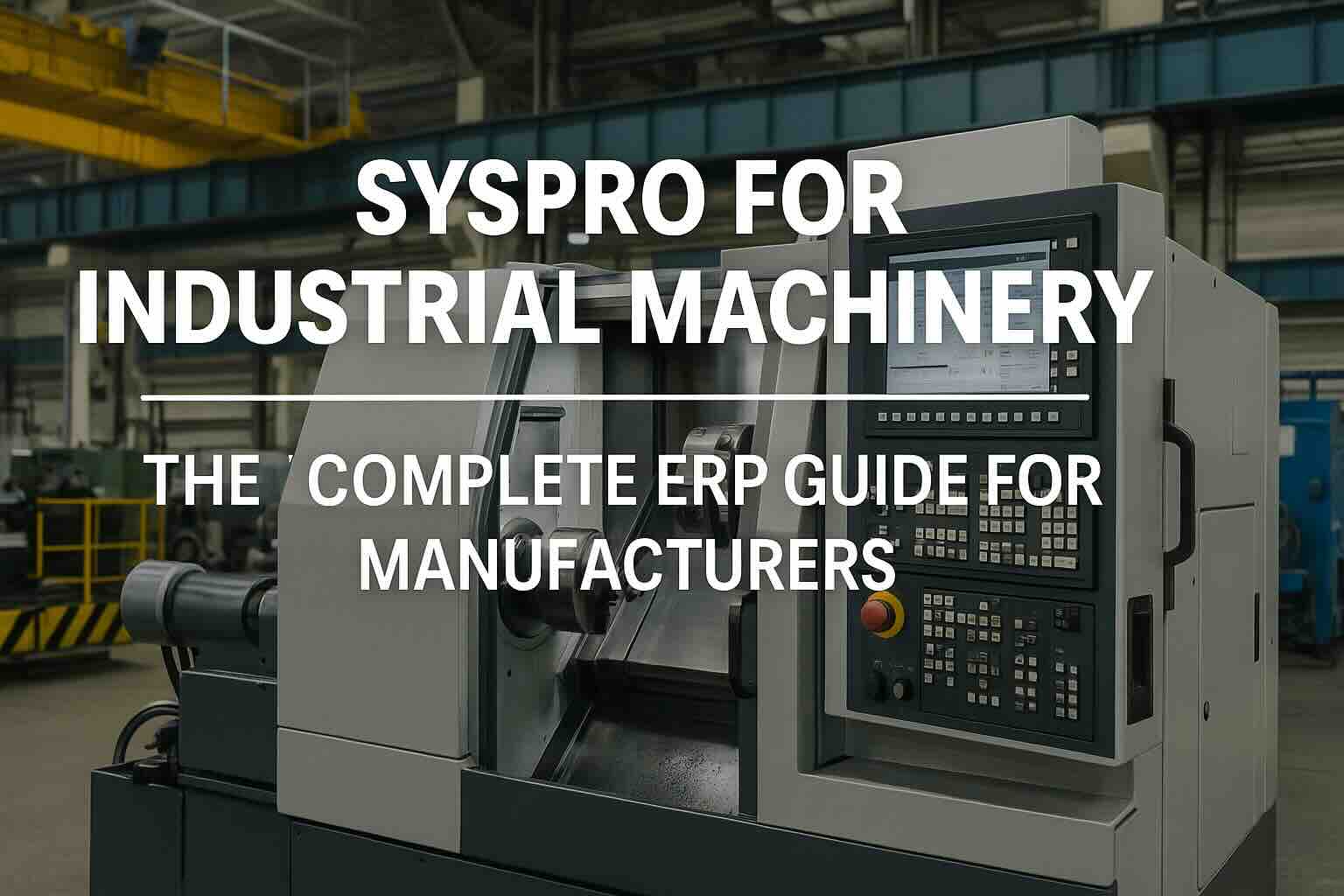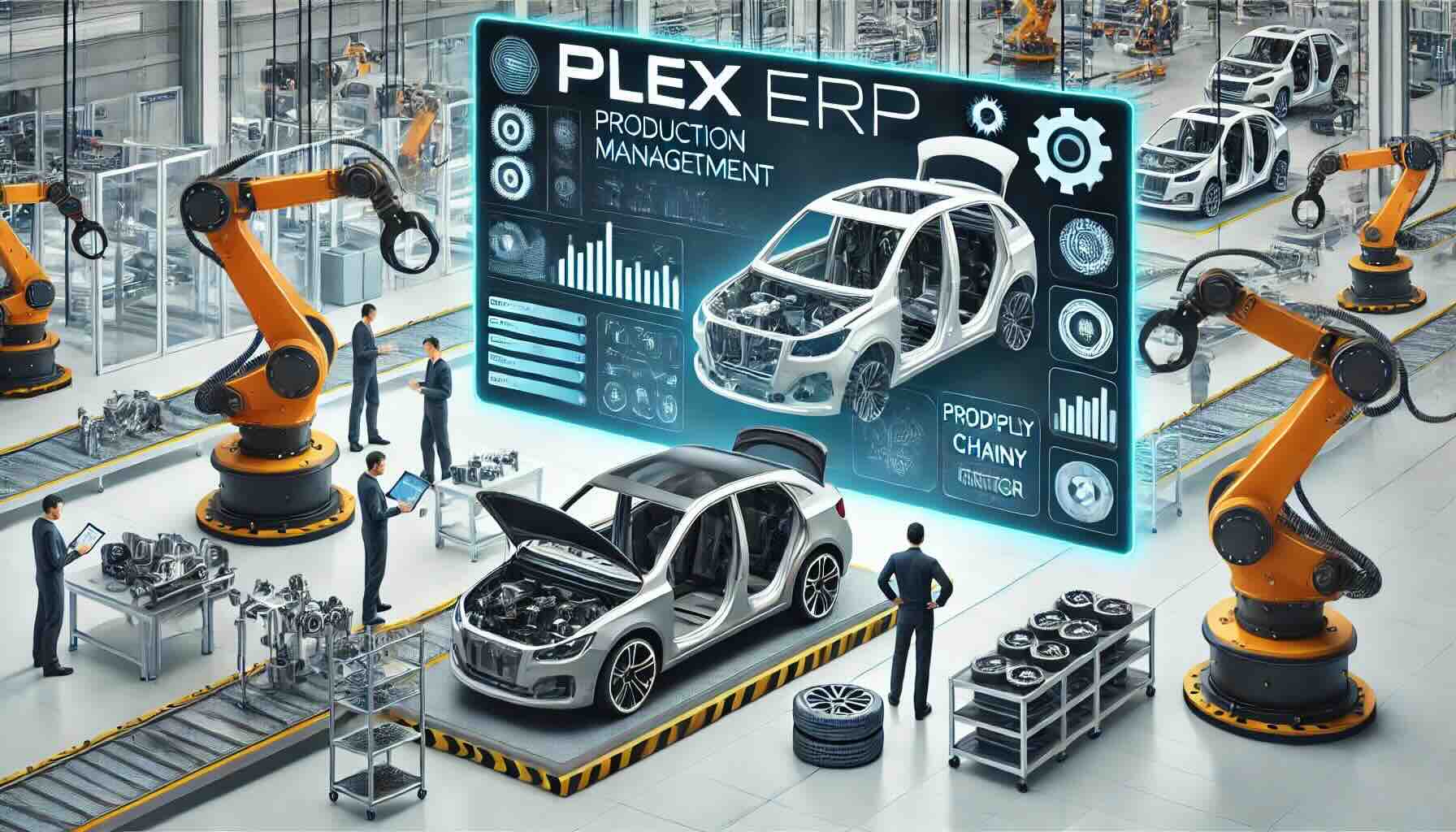Top 10 ERP Systems: Revolutionizing Business Management in 2024

In today’s fast-paced business environment, the need for efficient and integrated management solutions is paramount. Enterprise Resource Planning (ERP) systems have become the backbone of many successful companies, providing streamlined processes and real-time data access. This blog will explore the top 10 ERP systems of 2024, designed to meet the diverse needs of businesses across various industries.
1. SAP S/4HANA
SAP S/4HANA continues to be a leader in the ERP market, offering a comprehensive suite of tools for finance, supply chain management, and human resources. Its real-time analytics and advanced machine learning capabilities make it a top choice for large enterprises seeking to drive digital transformation.
2. Oracle Fusion Cloud ERP
Oracle Fusion Cloud ERP is renowned for its robust and scalable cloud-based platform. It integrates seamlessly with other Oracle applications, providing a unified solution for financial management, procurement, and project management. Its advanced analytics and AI-driven insights empower businesses to make informed decisions quickly.
3. Microsoft Dynamics 365
Microsoft Dynamics 365 is a versatile ERP system that combines CRM and ERP capabilities into a single platform. Its seamless integration with Microsoft Office 365 and Azure cloud services makes it an excellent choice for businesses looking to enhance productivity and collaboration. Dynamics 365 offers modules for finance, operations, sales, and customer service.
4. Infor CloudSuite
Infor CloudSuite is designed for specific industries, offering tailored solutions for manufacturing, healthcare, and retail, among others. Its cloud-based architecture ensures scalability and flexibility, while its intuitive interface and advanced analytics help businesses optimize their operations and improve decision-making.
5. NetSuite ERP
NetSuite ERP, a product of Oracle, is a leading cloud-based ERP system that caters to small and medium-sized businesses. It provides a unified platform for financial management, order management, inventory, and e-commerce. NetSuite’s real-time visibility and automated processes help businesses streamline operations and improve efficiency.
6. Workday
Workday is a popular ERP solution for human capital management (HCM) and financial management. Its user-friendly interface and mobile capabilities make it easy for employees to access and update information on the go. Workday’s continuous innovation and regular updates ensure that businesses stay ahead of the curve.
7. Epicor ERP
Epicor ERP is designed for manufacturers and distributors, offering robust tools for production management, supply chain management, and customer relationship management. Its industry-specific solutions and flexible deployment options make it a preferred choice for businesses seeking to enhance their operational efficiency.
8. Sage Intacct
Sage Intacct is a cloud-based ERP system that focuses on financial management and accounting. It is particularly popular among small and medium-sized businesses due to its ease of use, scalability, and integration capabilities. Sage Intacct’s real-time reporting and multi-entity management features help businesses gain better financial insights.
9. Odoo
Odoo is an open-source ERP system that provides a comprehensive suite of business applications, including CRM, e-commerce, accounting, inventory, and project management. Its modular design allows businesses to start with basic functionalities and add more modules as they grow. Odoo’s affordability and flexibility make it an attractive option for startups and SMEs.
10. Syspro
Syspro is an ERP system tailored for manufacturing and distribution industries. It offers robust features for inventory management, production scheduling, and quality control. Syspro’s focus on industry-specific needs and its ability to integrate with other systems make it a valuable tool for businesses looking to streamline their operations.
Conclusion
Choosing the right ERP system is crucial for businesses aiming to enhance efficiency, improve decision-making, and drive growth. The top 10 ERP systems listed above offer a range of features and capabilities to meet the diverse needs of various industries. By investing in a reliable and scalable ERP solution, businesses can achieve greater operational efficiency and stay competitive in the ever-evolving market landscape.
To compare these ERP solutions and many more, you can use our new AI-powered Compare ERP tool. It’s free to use and you get a guaranteed discount on your first year’s licence fees with a referral from Compare ERP.









